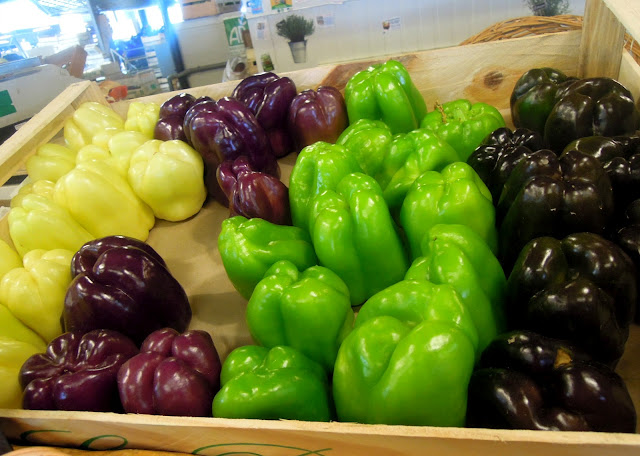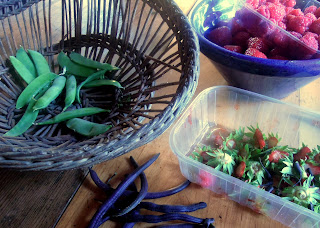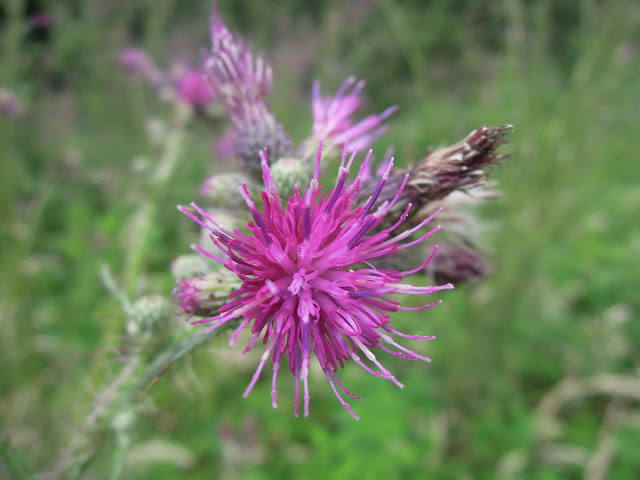I know your idea of paradise: It's a world where you feed yourself from food that grows about 50
feet away from where you sleep.
Oh, wait. That’s not your idea of paradise? It's only mine? ...And you're calling me a nerd?
OK, well, it’s my
paradise, then. And you and your 72 virgins or whatever are welcome to join.
 |
| Dinner for two? Four? Twenty? |
Their story is that after planting things at the beginning of the season, they just kinda let it do its thing. They get a little help from neighbors who can share in the bounty, or they find vagabonds like John and me to tend to it for a while. But the moral is that they make it happen with much less effort than you would expect looking at a garden this big.
So let’s talk about you, darling. Do you need a little
push? Have you been eyeing that plot of land in the community garden? Is there
an overgrown patch in your backyard that’s beggin’?
Top Ten Reasons to Start a Garden
1. You’ll save money
A packet of seeds costs less than a dollar. So it follows that a nice yield of growables can easily feed you and your family for less than what you would pay at the store. And probably your family’s family (which is still your family, really). And their pets, unless they have pigs (but maybe?). This woman feeds her family of four on 100 dollars a month!
 |
| Dried beans from haricots verts=seeds! It's like math! |
3. You can donate, sell, or trade surplus items (if you’re not the canning and jamming type).
· Get involved with community farmers markets or CSAs to sell
· See if other growers are interested in trading thing that you don't grow. My friend trades her produce for electrician services—don’t be afraid to barter!
 |
| I didn't even know peppers could have these colors |
Visit Ample Harvest or FeedingAmerica to find a place to donate
4. You can get started on that compost pile you’ve been thinking about
Why waste all that space in your trash bag when you could be creating food for your garden? This year alone, we will generate a quantity of trash equivalent to the weight of about 7,000 Empire State Buildings. Is anybody else uncomfortable by the idea that we are literally burying our garbage underfoot and assuming that this is ok for the earth? Ever think about aquifers? Erosion? Um, the future?
Don’t have a garden yet? I’m sure somebody from the farmer's market wouldn't mind some extra compost…
 |
| ah, screw it, let's just keep making landfills! |
5. It gets you outside
According to the Bureau of Labor Statistics, watching TV is America’s favorite “leisure activity.”
(I just threw up in my mouth a little. Graphic. Sorry.)
When is the last time you ate something that you
yourself grew? Have you ever eaten something you yourself grew? Americans spend less and less time outdoors, so why not
use a garden as an excuse to learn about the land? I’ve missed you, circle of
life.
According to the Bureau of Labor Statistics, watching TV is America’s favorite “leisure activity.”
(I just threw up in my mouth a little. Graphic. Sorry.)
 |
| Eat my heart out |
6. It helps the bees!
A statement prepared for congress by the Committee on the Status of Pollinators in North America (sounds fun!) reported that if honeybee populations continue to decline at their current rate, we will have no honeybees by 2035. Listen, if we want food, we need the bees.
While nobody is quite sure what exactly is causing this decline, it’s abeet interesting that pesticide use and crop homogenization has been increasing in the past years.
If you really want to bee crazy, become a beekeeper.
 |
| oil-free beans n' berries |
7. It eases dependency on foreign oil
How far did that green bean travel to make it to your plate? A University of Michigan study estimates that the average food item in America travels around 1,500 miles before being consumed. Apart from oil needed directly for transportation, there's oil used for packaging and processing, mechanical harvesting, and to produce fertilizers and pesticides (which accounts for 40% of energy use in agricultural production!). Want to read more?
8. It’s safer
It’s a sad fact that often we really don’t know what has been sprayed on our food to prevent pests or encourage speedy ripening. While
companies supported by big businesses often claim that these things aren’t harmful to humans, why take the risk on consuming anything inundated with pesticides? The more you grow and eat local food, the stronger the message that we don’t want mass-produced, pesticide-laden, and genetically identical foods.
 |
| "Sixty-five different pesticides, fungicides and herbicides are registered for use on strawberries in the US." Yum! |
9. It’s healthier
A 2012 CDC study cited that over a third of adults in America are obese!
You can bet that the nutritional content of local and fresh food is
higher, but add all that watering, digging, and lifting, and you have a calorie
burner, too…oohlala!
A 2012 CDC study cited that over a third of adults in America are obese!
 |
Like nine peas in a pod...
|
10. It tastes better
When it comes to making a sale, the appearance of a fruit or vegetable is often more important than the actual taste. That’s why, for example, supermarket tomatoes are often picked when green and artificially ripened by spraying them with ethylene gas. It’s just too difficult to ship an already-ripe tomato from California to New York. So yes, this is one of the reasons behind that mealy texture and bland flavor.
(Want to know why else they don’t taste as good as they look?)
 |
| oh you. oh you guys. |
On the other hand, the taste of food that has
traveled less than 2 minutes to get to your kitchen simply sublime. Even
lettuce. It’s luscious, for God’s sake. It’s hard to believe, I know, but
Chowgypsy won’t lie to you. There is just something about food harvested and
eaten at its prime.
So what's your perspective on gardening? Can you give me some reasons I forgot to mention?
(please leave links in the post section if you have some more that I should add!)
Now go out there and show 'em who's boss!
Happy growing!
Don't forget to sign up to receive Chowgypsy updates in your inbox :)


My mom worked over 50 hours a week and had a mighty fine garden and she canned to boot. Love the list-- add a school garden to the curriculum and you've got a great educational resource too. Science, math, social studies and health-- all you need is a pile of dirt, seeds, sunshine, and water.
ReplyDeleteOne thing I did as an admittedly unprepared beginner gardener was donate my harvest to a food bank. You can also look up your local gardening community, we have a harvest exchange and seed exchange and for beautiful tropical Flowers to Breathe Life.
ReplyDelete